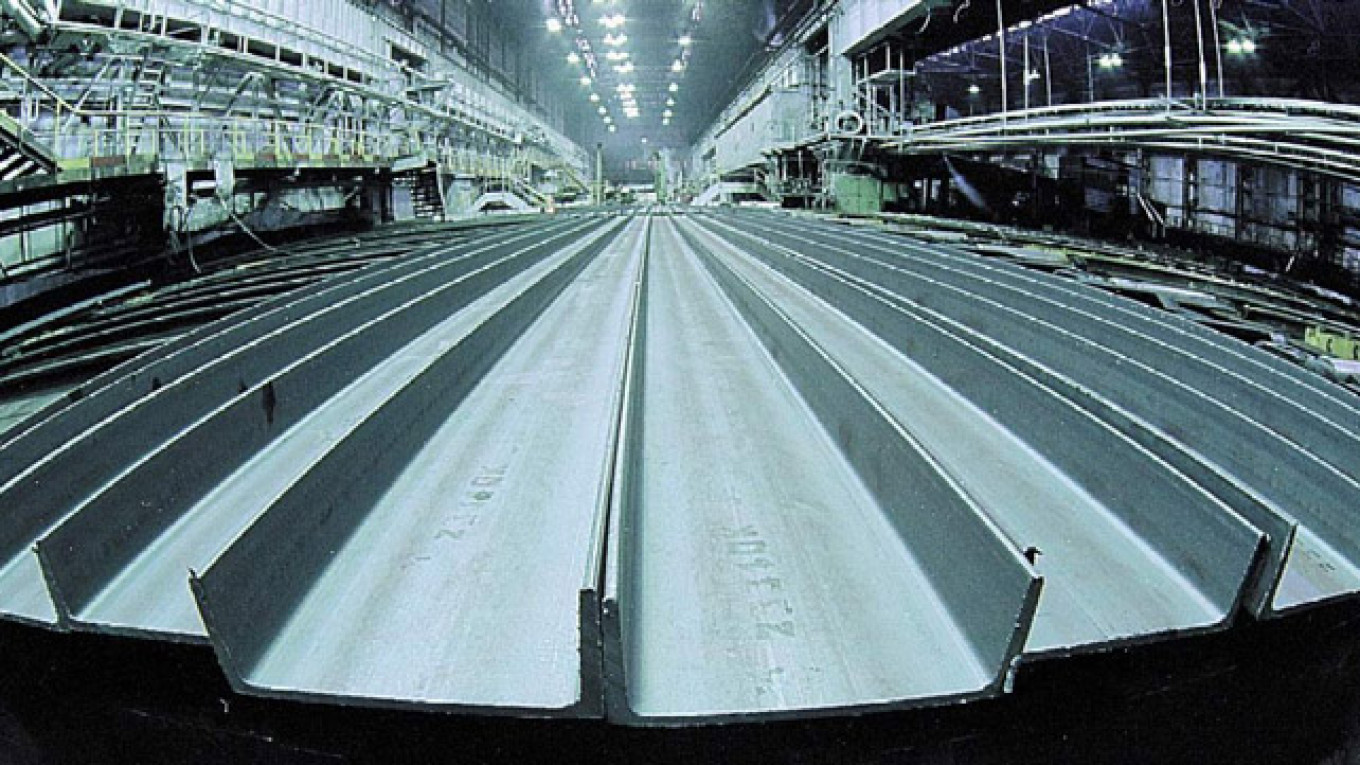ING and Deutsche Bank have launched syndication of a $700 million, five-year loan for Russian steel company Evraz, which is the first loan to launch since economic sanctions were imposed on Russia, bankers said Wednesday.
The syndicated loan market has been effectively closed since sanctions were imposed in April and banks have been reducing their exposure by selling Russian loans in the secondary loan market.
Some lenders say that this process will be difficult to reverse and the Russian loan market could be closed for up to a year.
Invitations for the pre-export deal were sent to about seven banks this week, the bankers said.
Evraz was not immediately available for comment.
Bankers close to the deal are hoping that more positive sentiment toward Russia since the election of new Ukrainian President Petro Poroshenko last weekend will calm lenders' fears about Russian risk.
"After the elections I think banks will be more relaxed around Russian exposure, the political situation seems more stable," a London-based banker said.
Although Evraz is regarded as a more international company with assets and manufacturing facilities globally and a number of offshore accounts, the outcome of the loan remains uncertain, bankers said.
None of the invited banks have got approval from their credit committees to join the deal yet, two bankers said.
"Lenders will want time to assess the situation, many have made the radical decision to step away from Russia and that decision is not going to be reversed easily," a second banker said. "I cannot see any deals getting done soon."
Evraz was last in the loan market in November 2010, when it signed a $950 million, five-year pre-export financing with a group of 14 international banks with Deutsche Bank, ING and Royal Bank of Scotland acting as coordinators.
Evraz is part-owned by Chelsea Football Club owner Roman Abramovich.
A Message from The Moscow Times:
Dear readers,
We are facing unprecedented challenges. Russia's Prosecutor General's Office has designated The Moscow Times as an "undesirable" organization, criminalizing our work and putting our staff at risk of prosecution. This follows our earlier unjust labeling as a "foreign agent."
These actions are direct attempts to silence independent journalism in Russia. The authorities claim our work "discredits the decisions of the Russian leadership." We see things differently: we strive to provide accurate, unbiased reporting on Russia.
We, the journalists of The Moscow Times, refuse to be silenced. But to continue our work, we need your help.
Your support, no matter how small, makes a world of difference. If you can, please support us monthly starting from just $2. It's quick to set up, and every contribution makes a significant impact.
By supporting The Moscow Times, you're defending open, independent journalism in the face of repression. Thank you for standing with us.
Remind me later.


